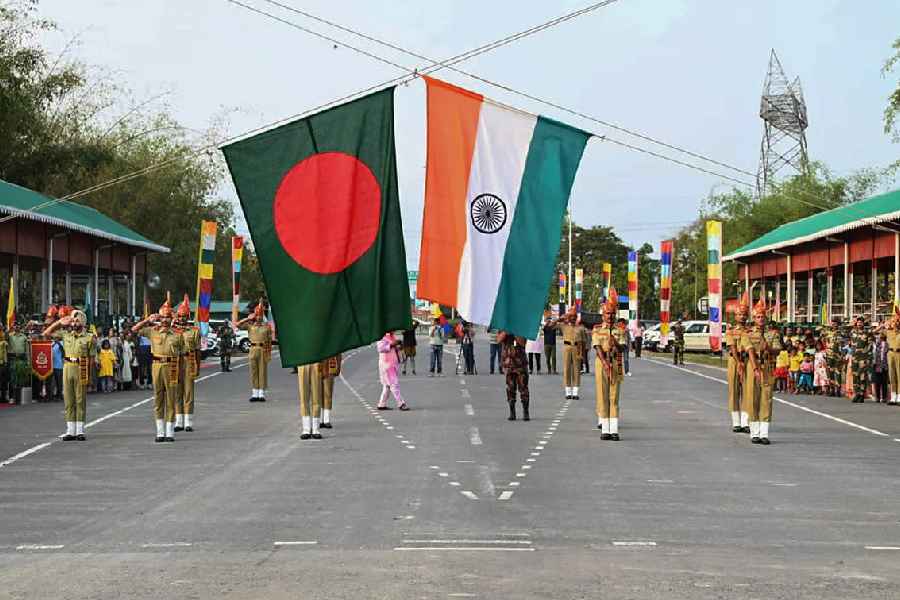Twelve years after a tribunal in Assam declared Md Rahim Ali alias Abdur Rahim as a “foreigner”, a division bench of the Supreme Court of India on Thursday declared him as an Indian national.
“Putting an authoritative quietus to the issue, the appellant is declared an Indian national and not a foreigner,” ruled the division bench comprising Justice Vikram Nath and Justice Ahsanuddin Amanullah.
The division bench has raised uncomfortable questions on the process of declaring a person as a foreigner before the Assam government, where the BJP is in power, a state which has been fraught with rampant allegations of unauthorised migration by Bangladeshi nationals.
“However, the question is does Section 9 [of the Foreigners Act] empower the Executive to pick a person at random, knock at his/her/their door, tell him/her/them ‘we suspect you of being a foreigner.’, and then rest easy basis section 9,” asked the bench, according to the order signed by Justices Vikram Nath and Ahsanuddin Amanullah.
The Supreme Court website, however, mentions that the bench included Justices Sudhanshu Dhulia and Ahsanuddin Amanullah and the judgment was delivered by Justice Dhulia.
What happened with Md Rahim Ali alias Abdur Rahim
Mohd Rahim Ali alias Abdur Rahim was born in the village of Dolur under Patacharkuchi police station in Barpeta district. His name was enrolled in the electoral rolls in the year 1985.
Twelve years later, Ali moved to Kashimpur in the district of Nalbari following his marriage. The same year he got his name enrolled in the voters’ list at Nalbari, according to the court documents.
In 2004, a sub-inspector of the Nalbari police station was deputed to investigate Ali’s antecedents. It was alleged that Ali had illegally migrated to India after March 25, 1971 – the cut-off date for migrants from Bangladesh – from Dorijahangirpur in Mymensingh district of the neighbouring country and had settled in Kasimpur, Nalbari, Assam.
According to the police report Ali could not provide any documentary evidence to support his claim of being an Indian by birth.
In 2006, a complaint was filed against Ali with the Foreigners Tribunal in the district accusing him of being a foreigner.
On March 19, 2012, the Tribunal ruled: “…the appellant had failed to discharge his burden under Section 9 of the Act and failed to prove that he was not a foreigner.”
On May 30, 2012, Ali moved Guwahati High Court against the Tribunal’s order. The HC had initially issued a stay on the Tribunal’s order. In November 2015, Ali’s plea was dismissed and he remained branded a “foreigner”.
The counsels appearing on behalf of the Assam government had argued: “The proceedings against the appellant had already taken two decades to reach this state and any further delay would defeat the very object and purpose of the Act which is speedy detection and deportation of illegal migrants/foreigners staying in India.”
What did the Supreme Court say in the case?
The bench observed that Ali’s case was that of “grave miscarriage of justice”.
“The originating point of inquiry is the SP Nalbari’s direction to the sub-inspector [Bipin] Dutta on May 12, 2004. The pleadings and the record are silent as to what was the basis of SP Nalbari’s direction? What materials or information had come to his knowledge or possession that warranted this direction?”
The bench went on to add: “In the present case though it is mentioned that from inquiry it was revealed that the appellant had migrated illegally to the state of Assam from Bangladesh after March 25 1971 but nothing has come on record to indicate even an iota of evidence against him, except for the bald allegation [Sic]…”
The apex court bench also observed it was not clear who had initiated the allegation against Ali that he was a foreigner.
The SC observed that the onus was on the state of Assam to inform the appellant what evidence it had gathered against him to label him a foreigner.
“… the authority had been, as claimed, able to trace the appellant’s place of origin. Surely then the authority had some material to back this assertion.”
The SC also stated that Ali had provided evidence before theTribunal that his parents were residing in India before January 1, 1966.
“[The evidence] has been disbelieved only on the ground of mismatch of actual English spelling of the names and discrepancy in dates,” the bench observed, adding the discrepancies in the appellant’s claims were minor and the inferences drawn by the Tribunal “did not falsify” his claims.











